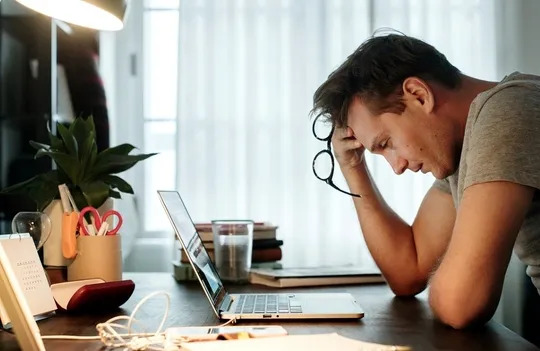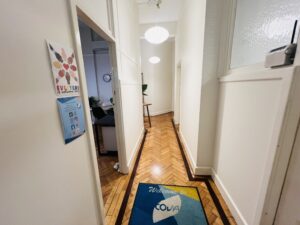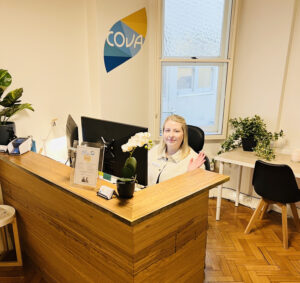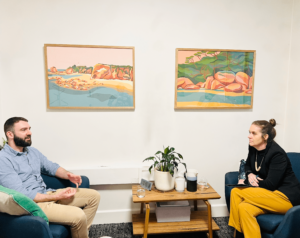The impact of the COVID-19 crisis on mental health is significant – we will all face additional stress, anxiety, loneliness, isolation.
Just as Victorians were starting to feel some relief from the lifting of our first lockdown in June, COVID-19 cases spiked for a second time.
This has led to stage 3 restrictions being re-introduced to the Melbourne and Mitchell Shire areas for a second time this year – much of the state finds itself in “lockdown 2.0.” In addition to these restrictions, our second lockdown brings unique mental health challenges for the people of Victoria.
The state now faces uncertainty regarding the timeline for getting on top of COVID19 and as such – uncertainty regarding how the impact of the crisis will impact Victorians going forward.
What are some of our responses to a second lockdown?
- Many are wondering how long restrictions will be in place and how long COVID19 will continue to be a concern. In addition, worrying about the ongoing impact of restrictions into the future is natural. These concerns focus on a range of areas including the health risk for our families as well as the impact on businesses and employment – “Will my family be safe? What about our vulnerable communities? How with the second lockdown impact the business that I work for? Is my job safe?”
- Some of us are wondering how we got here and are comparing Victoria to other parts of Australia. These concerns are bringing up a range of processes and emotional experiences from confusion, frustration, anger, and sadness.
- It’s natural to focus on what you might have missed out on in 2020 due to COVID19. A second lockdown means that plans which were delayed earlier in the year will need to be shelved for longer than we had planned. Travel plans, career changes, moving interstate, goals around meeting new people – plans in all of these areas may now be further from reach.
- Our behaviour may change in response to the above worries listed above. Instead of taking action, we may find ourselves spending more time thinking about and focusing on the impact of COVID19 and being in lockdown. This can mean we are experiencing less motivation to focus on and engage in self-care such as exercise, sleep hygiene and healthy eating.
How can we manage these feelings?
First up, if you relate to any of the above points – take a moment to validate yourself! These responses are normal – they make sense in the context of our circumstances. As such, as you turn your attention to how you might be responding to the circumstances in Victoria, it’s important that you approach yourself with acceptance and kindness. How each person responds is highly individual, so try not to compare yourself to others or let others make you feel bad for having the thoughts you’re having. How you feel is how you feel – that’s okay. You do, however, have choices around how you react to your own responses.
Avoid constant consumption of COVID19 news.
It is certainly important to know what is happening with regards to COVID19 in the state – so consuming some of the news is essential, but try to minimise constant access to the 24 hour COVID19 news cycle. Stay informed, but ensure you have a healthy break from COVID-19 news.
Manage thoughts about the future.
Notice when your mind is focused on worries about the future “How long will this go on for? What if X happens etc.”
Sometimes these thoughts lead us to making practical plans for the future that are helpful – for example planning for how we support ourselves if our job is at risk. Often though, we experience worrying thoughts with no real resolution – we ruminate about what could happen, without evidence that it will. This becomes a stressor in and of itself. Notice when your mind jumps into the future and try bring it back to present. This is a principle of mindfulness, an approach which many are using to support mental health throughout the pandemic. Mindfulness helps us avoid getting stuck in unhelpful thoughts with a goal of keeping us in the present.
Avoid struggling with reality, use acceptance.
Notice when you are wrestling with reality. You may find yourself looking on at the other Australian states with envy. You might play out scenarios in your head which may have led Victoria to a better COVID-19 outcome. These thoughts are understandable – but don’t let them take up too much of your energy.
Just as getting stuck in the future can be unhelpful, so too can getting stuck in the past or stuck in an alternate reality. What’s really unhelpful here is that these thoughts generate painful emotions (anger, disappointment, sadness etc), whilst offering nothing productive for improving our day to day life. Notice these thoughts, and come back to the present – again, mindfulness can help here. We might also draw on the idea of acceptance as we come back to the present – acceptance can help us tolerate something we find difficult. We might say to ourselves “it is what it is…” or “well, it’s out of my control, I’m letting it go.” These ideas help us recognise that fighting with reality is not helpful – it’s a trap.
Focus in on what you can control and create a routine
When your thoughts are stuck in the future, or when we are struggling with reality – we can start to feeling helpless and disempowered. This is because we are focusing in on things we can’t control. Respond to this by identifying things in your immediate environment that you can control. This includes how you spend your time at home (engaging in hobbies, interests, pleasurable activities, learning new skills), ensuring you have a decent amount of social contact, and of course our next point – looking after your own self-care.
Research indicates that routine and structure are powerful factors that can protect our mood. When it comes to focussing in on what you can control, it is helpful to setup a weekly routine which addresses – “When will I exercise? When will I have social time? When will I engage in pleasurable activities? When will I attend to cleaning and life admin?” By creating a structure around these activities we are empowering ourselves by making choices, we are creating predictability and stability in our lives, and we are increasing the likelihood that we will follow through with our plans.
Ensure you are attending to self-care as part of your routine
Ensure you are doing what you can to get exercise, eat healthy, and keep good sleep hygiene. In regards to exercise, it is important you leave the house at least once a day during lockdown, even just for a short walk. Given lockdown is an extra stress, you might need to think about additional pleasurable activities you can add into your life to cope with the extra stress. Activities that are relaxing and soothing can make a big difference and can be as simple as reading a book or trying to cook a new recipe.
Reach out and lean on your supports. Plan regular and routine social time.
We are social beings. We need interactions with others. We might not be getting as much socialising as we are used to, but we need to make sure we keep in touch with our supports. Consider using technology to set up regular social catch ups with friends and family, use this as a time to voice your concerns and keep connected. You might setup a weekly “online” dinner with friends or family – plan to run the dinners every week until the end of the lockdown. If you are living alone, it’s imperative you find ways to ensure you have social contact – either through online means or by going walking or exercising with someone who lives in your neighbourhood.
If you are struggling to manage your mental health during this stressful time – we are here to support you. Get in touch with us to explore booking a Psychologist Melbourne. Our Melbourne Psychologists offer a wide range of therapies including EMDR Therapy Melbourne.














